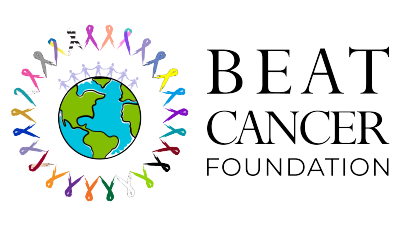
Upper Gastrointestinal Cancers

Clarifying Upper Gastrointestinal Cancers
Upper Gastrointestinal Cancers: A Comprehensive Guide
Upper gastrointestinal (GI) cancers encompass a group of malignancies originating in the upper digestive system, including the esophagus, pancreas, bile duct, and liver. Classifying these cancers based on their location and cellular makeup enables patients to make informed decisions about their treatment and aids practitioners in devising the most effective care plans.
Pancreatic Cancer
Pancreatic cancer arises in the pancreas, an organ nestled in the upper abdomen. Approximately 90% of cases are adenocarcinomas, while the remaining 10% are neuroendocrine tumors (NETs). Adenocarcinomas tend to progress more rapidly than NETs and often obstruct the bile duct.
A combination of natural and conventional approaches is suggested to support the body during treatment. This may involve specific nutrients and nutraceuticals that enhance the immune system and reduce inflammation, as well as a balanced diet that minimizes animal proteins and dairy products. Practitioners may also assess for specific cancer balancers to help the immune system target the cancer directly. Complementary therapies like Rife technology, PEMF, and hyperthermia therapy may also be advised.
Gallbladder Cancer
Gallbladder cancer is a rare malignancy that originates in the gallbladder, a small organ adjacent to the liver. Nearly all cases are adenocarcinomas. During treatment, practitioners may explore potential causes and address them accordingly. Antioxidant nutrition, anti-inflammatory nutrients, and immune-boosting polysaccharides from medicinal mushrooms may be recommended. To facilitate the body's detoxification pathways, castor packs and coffee enemas may also be employed.
Bile Duct Cancer
Cholangiocarcinoma, or bile duct cancer, develops in the bile ducts—slender tubes that transport bile, a digestive fluid. These ducts connect the liver, gallbladder, and small intestine. Symptoms of bile duct cancer, such as jaundice and alterations in other symptoms, should be reported to a doctor immediately.
During treatment, practitioners may concentrate on supporting the body's detoxification pathways and assisting the liver and kidneys in toxin elimination. This could entail dietary modifications, like reducing animal proteins and dairy products, and nutraceuticals that bolster colon, liver, and gut health. Rife technology may also be suggested as a complementary therapy.
Liver Cancer
Liver cancer starts in the body's largest internal organ, which is responsible for over 700 functions, including detoxification. To assist the body during treatment, practitioners may focus on bolstering the liver's detoxification pathways and impeding the cancer's growth. This can involve antioxidant nutrition, minimizing animal proteins and dairy products, and nutraceuticals that enhance liver health. Rife technology may also be proposed as a complementary therapy.
Esophageal Cancer
Esophageal cancer originates in the cells lining the esophagus, the muscular tube that transports food and liquids from the mouth to the stomach. The two main types are squamous cell cancer, more prevalent in the upper esophagus, and adenocarcinoma, more common in the lower esophagus.
To aid the body during treatment, practitioners may suggest liquid nutrients and anti-inflammatory nutrition to alleviate inflammation and bolster the immune system. This can include curcumin, boswellia, green tea extract, ginger, rosemary, and resveratrol, among others. Dietary alterations, such as reducing animal proteins and dairy products, and nutraceuticals that support gut health may also be advised. Rife technology may be employed as a complementary therapy.
In conclusion, understanding the different types of upper gastrointestinal cancers can help patients make informed decisions about their care and help practitioners create the most optimal protocols. Each type of cancer is unique and requires a personalized approach to treatment. Alternative practitioners focus on improving the overall condition of the body, the immune system, and the ability to detoxify, in addition to finding the cause of the cancer and testing for specific cancer-balancing nutraceuticals.
“Knowing all your treatment options could be life-saving!”
Location
Sheridan, WyomingTogether, we can beat cancer
Thank you for your interest in the Beat Cancer Foundation. We are here to support you every step of the way in your cancer treatment journey. Please fill out the form below, and our team will be in touch with you shortly. Together, we can beat cancer. (307) 291-0991

